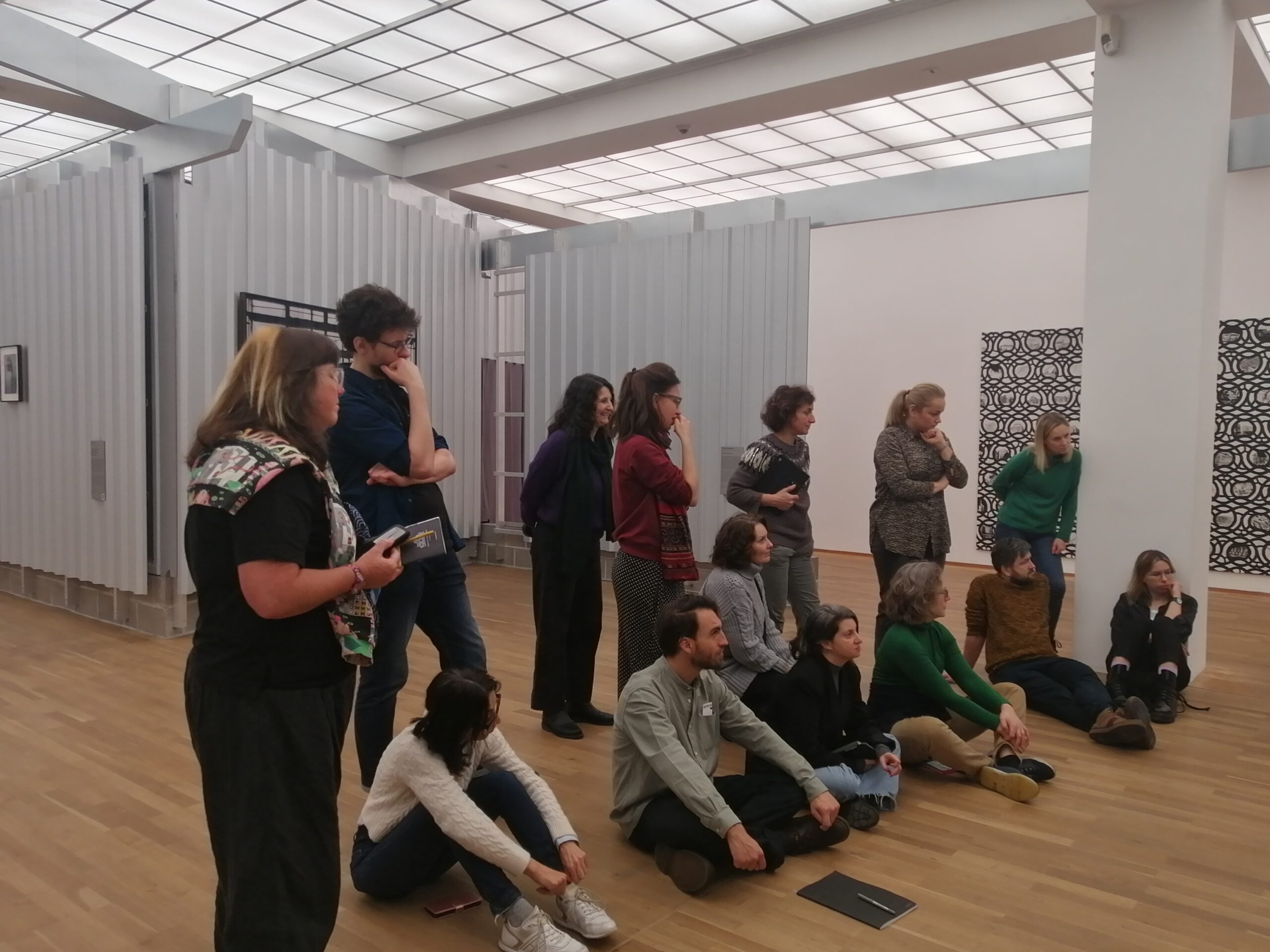Acting Together for Change
Dr. Justyna Deszcz-Tryhubczak (University of Wrocław, Poland)

Children’s participation in social and political life and intergenerational connectivities that may emerge once adults recognize young peoples’ agencies have for a long time been at the heart of my research – both in my theoretical work and in practice. I was engaged in several projects in which I collaborated with children as co-researchers actively shaping the research process. I view these projects as ethically driven, socially engaged, and activist research that manages to bridge the gap between academia and the general public (see e.g. Chawar et al. 2018, Deszcz-Tryhubczak et al 2019 , Deszcz-Tryhubczak 2023). My involvement in Seen and Heard has encouraged me to continue exploring the ways in which — as a children’s literature and culture scholar — I can facilitate intergenerational collaborations around culture that speak to the ongoing challenges related to exercising human rights. Also, the numerous opportunities for sharing this commitment with colleagues – scholars, educators, and artists – make our project a care-full endeavor in which all of us can be seen and heard and in which ideas are followed by joint action. As such, Seen and Heard is a powerful example of com(mon)passions (see Cielemęcka and Rogowska Stangret 2015 and García González and Deszcz-Tryhubczak 2020), that is, of shared and deep engagement in thinking/feeling, teaching/learning, and critique/creativity that fosters socially relevant and accountable modes of knowledge-making.
This collegiality shaping Seen and Heard is in turn a precious alternative to the predominantly individualist nature of research in the humanities that, in my view, substantially reduces the potential of our work to impact the non-academic world. I also find our collective work in the project to be a nurturing source of hope and joy in the disheartening times of humanitarian, political, economic, and ecological crises that we are facing in Europe and elsewhere – the times that can make one doubt the potential of culture to improve our realities. Seen and Heard shows that we can read and study literature in ways that provoke changes in our worldviews and mobilize our energies to intervene in real-life events and phenomena.
Since the launch of Seen and Heard in autumn 2023, we have had many fascinating, if sometimes heated and troubled, discussions about how to implement its stages. I am grateful for these conversations as I see them as the sustenance of our work that enables us to become-with each other and envision and sometimes follow so many exciting openings that lead beyond the activities initially planned in the application for funding. And even if we are not always able to pursue these possibilities, for example because of time or budget limitations, they show us what else and how much else should and can be done through our scholarship, across other fields, and in the arts and culture industries to ensure that we all, regardless of our origins, age, profession, and status have the right to be seen and heard in our communities and societies.
Another aspect of the project that I find especially significant is our collaboration with local schools. Our partner school in Wrocław is Primary School No. 1. I continue to be amazed at and grateful for its staff’s enthusiasm and support for Seen and Heard despite the difficult condition of the Polish schooling system, often diagnosed as nearing a state of collapse due to shortages of teachers, curricula overload, and impractical subject matter. The school authorities’ and teachers’ everyday care for all their students as full-fledged citizens and members of society reflects in the young people’s courage to express their views and to share, sometimes so passionately, their concerns and hopes, which I had the privilege to witness in the course of the literature workshops I conducted at the school this month. As I listened to the students’ insightful, and sadly often embittered, reflections on the importance of being seen and heard by their peers and by adults, as well as about what they think should be changed in their immediate lifeworlds and in broader contexts, I felt inspired to conceive of other ways in which my research on children’s literature and culture could draw on the right to participation and self-expression. As the students shared their opinions of the books that we invited them to browse, I realized that the future of our field lies in building intergenerational communities of creators and readers that can render each other capable in transforming the present and shaping the future.
As we are moving closer to implementing the mentoring programme and developing creative protests in collaboration with artists and students, I can feel my excitement, wonder, and gratitude growing every time we meet and discuss the details of this work. I am looking forward to learning more from my colleagues, the teachers, and the young people involved in Seen and Heard in order to continue cultivating methodologies and approaches through which children’s literature and culture scholarship can strengthen and promote resilience, critical thinking and activism in a world marked by relentless crisis.

